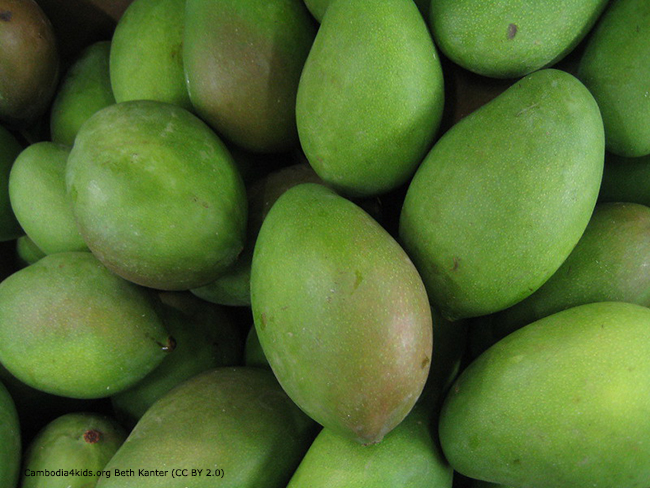Cambodia, People’s Republic of China Sign the Protocol of Phytosanitary Requirements for Mango Export

Photo: Beth Kanter/ Flickr [2](CC BY 2.0)
Cambodia and the People’s Republic of China (PRC) signed the Protocol of Phytosanitary Requirements for Fresh Mango Export [3] on 9 June 2020. This will allow Cambodia and the PRC to work together on the phytosanitary practices of Cambodia’s mango farms to increase Cambodia’s mango export to the PRC. Cambodia can export up to 500,000 tons of high quality mangoes to the PRC per year, according to the Embassy of the PRC. Twenty mango farms have already registered and applied for phytosanitary inspection.
The 5th Meeting of the Cambodia-PRC Intergovernmental Coordination Committee [4] on 16 June pledged to speed up implementation of this agreement. The meeting also pledged to actively expand Cambodia’s exports to the PRC to include bananas, cassavas, and other agricultural products. The PRC stated in the joint press release that it will actively consider providing funding support for Cambodia’s priority infrastructure projects, including highways, bridges, power grids, and irrigation systems.
Data from Cambodia’s Ministry of Agriculture, Forestry, and Fisheries report that Cambodia exported 44,099 tons of mangoes to foreign markets in the first five months of 2020, a 50% increase compared to the same period in 2019. Cambodia’s mango markets also include Thailand and Vietnam.
Compliance with sanitary and phytosanitary (SPS) regulations, as well as greater integration of standards, harmonization of trade protocols, and improved policy and regulatory environment for business and foreign direct investment (FDI), complements development of Greater Mekong Subregion transport and economic corridors to result into more intra- and extra-subregional trade.
Last Updated: 25 June 2020
